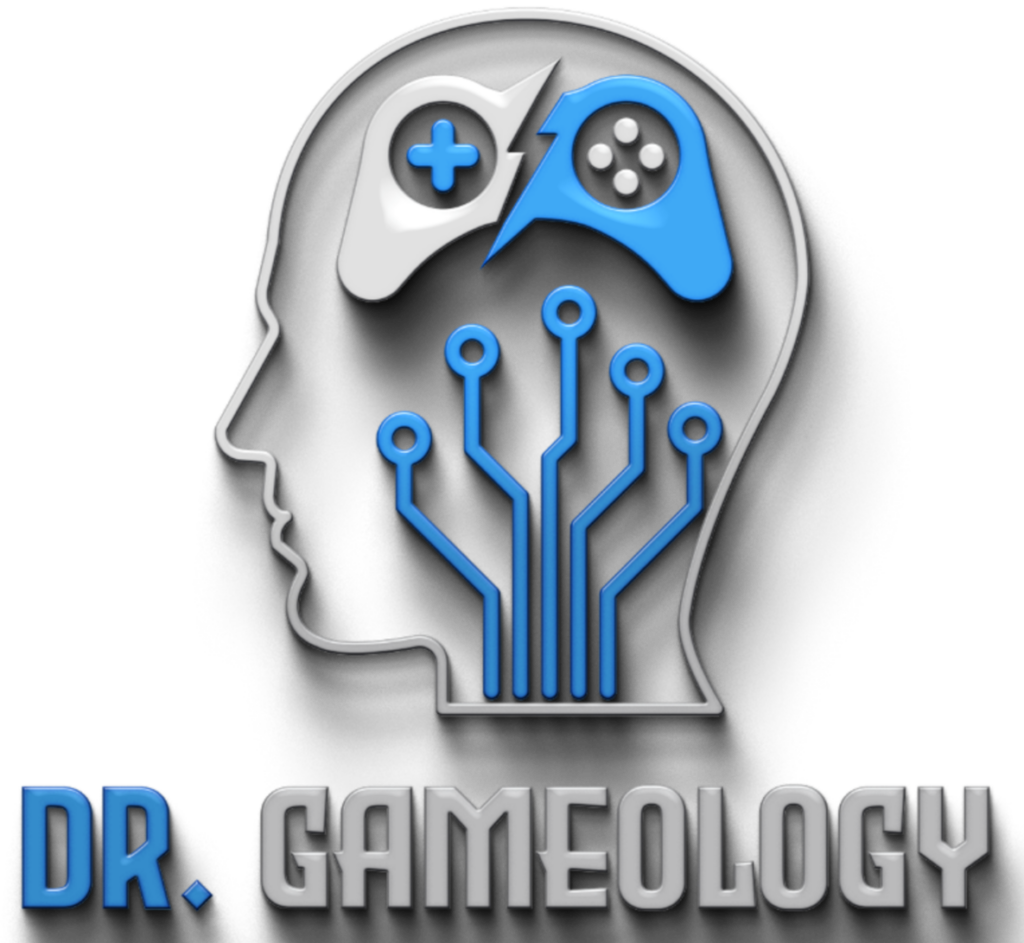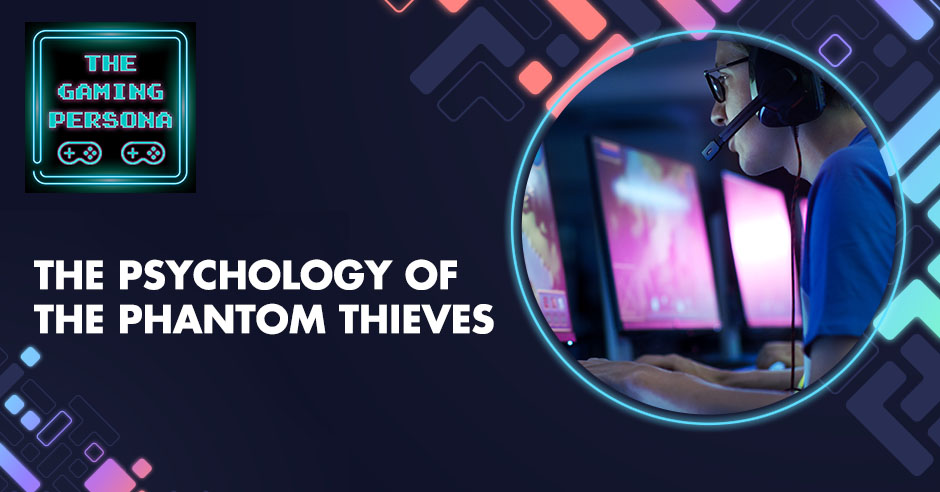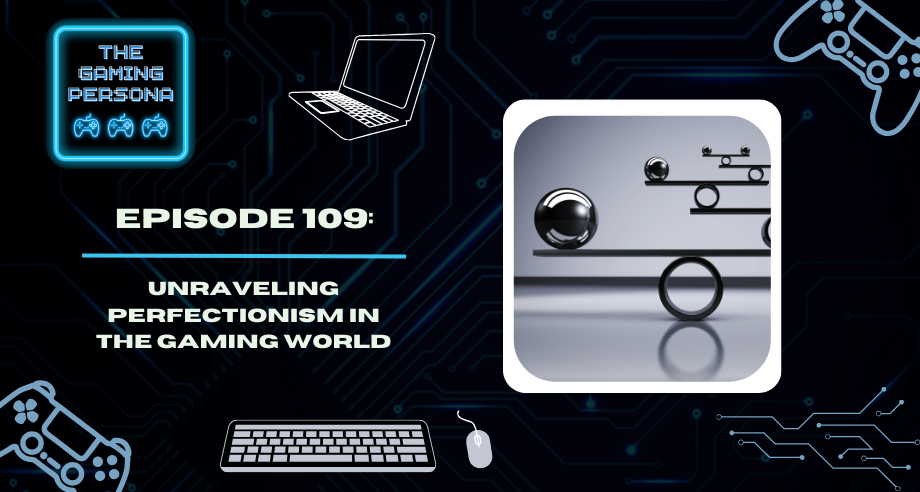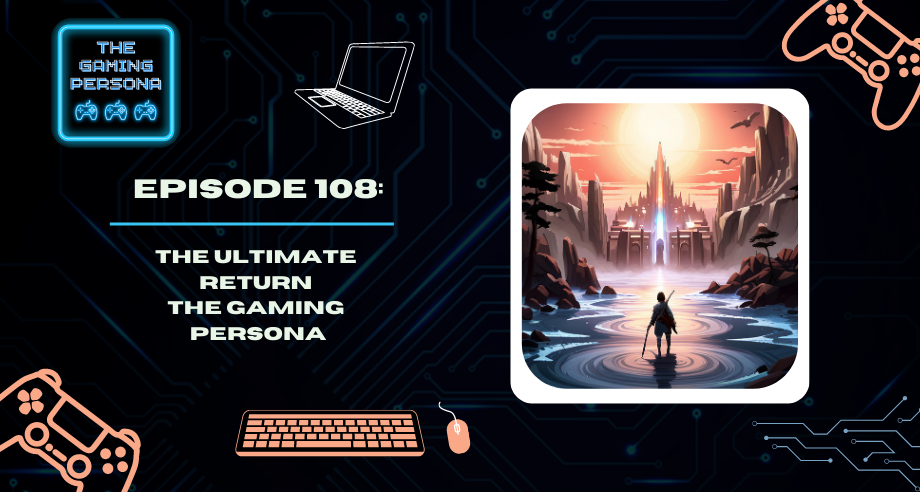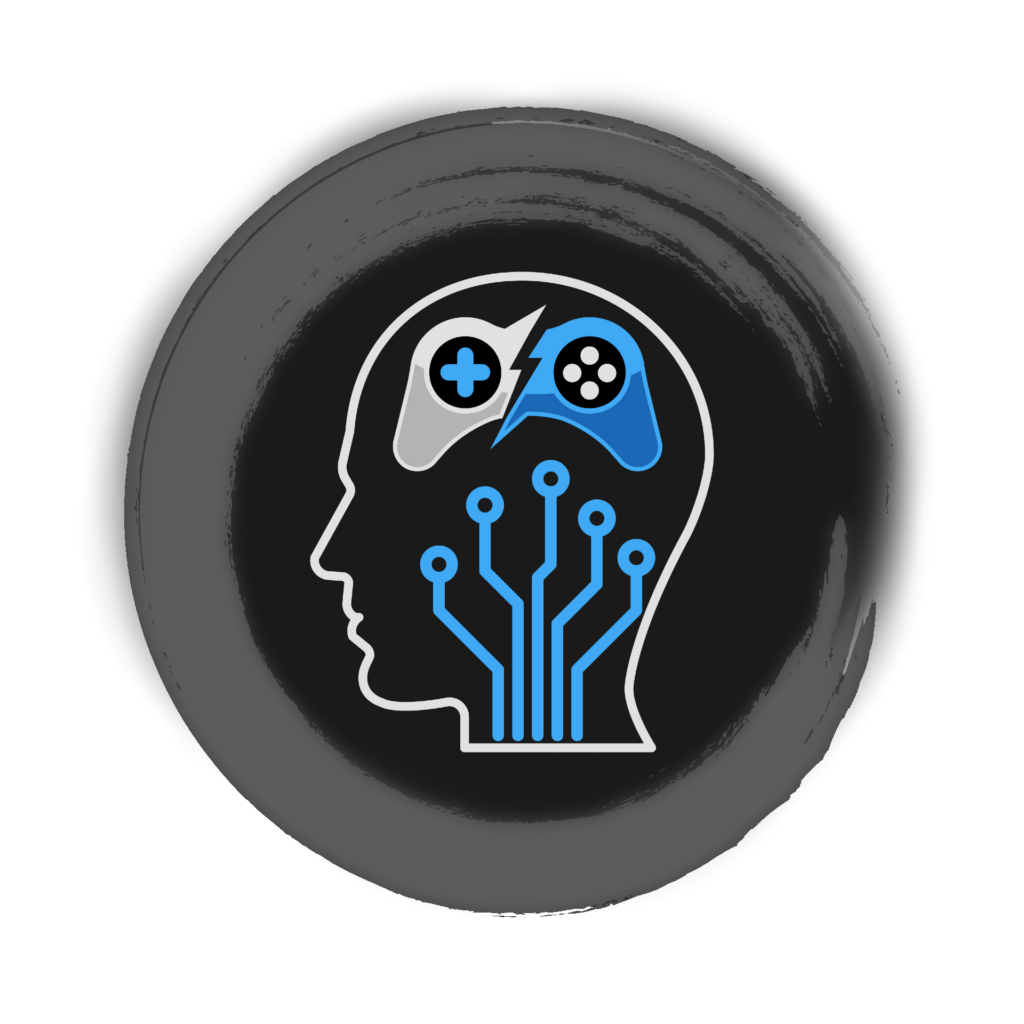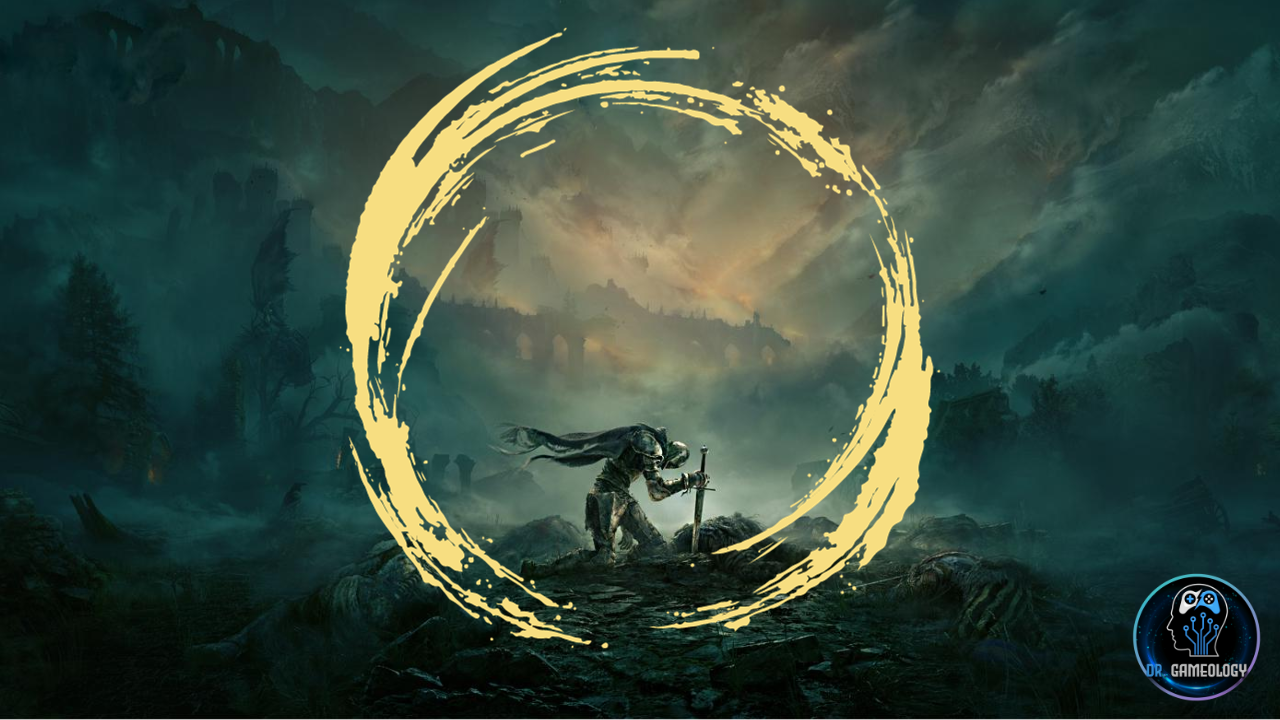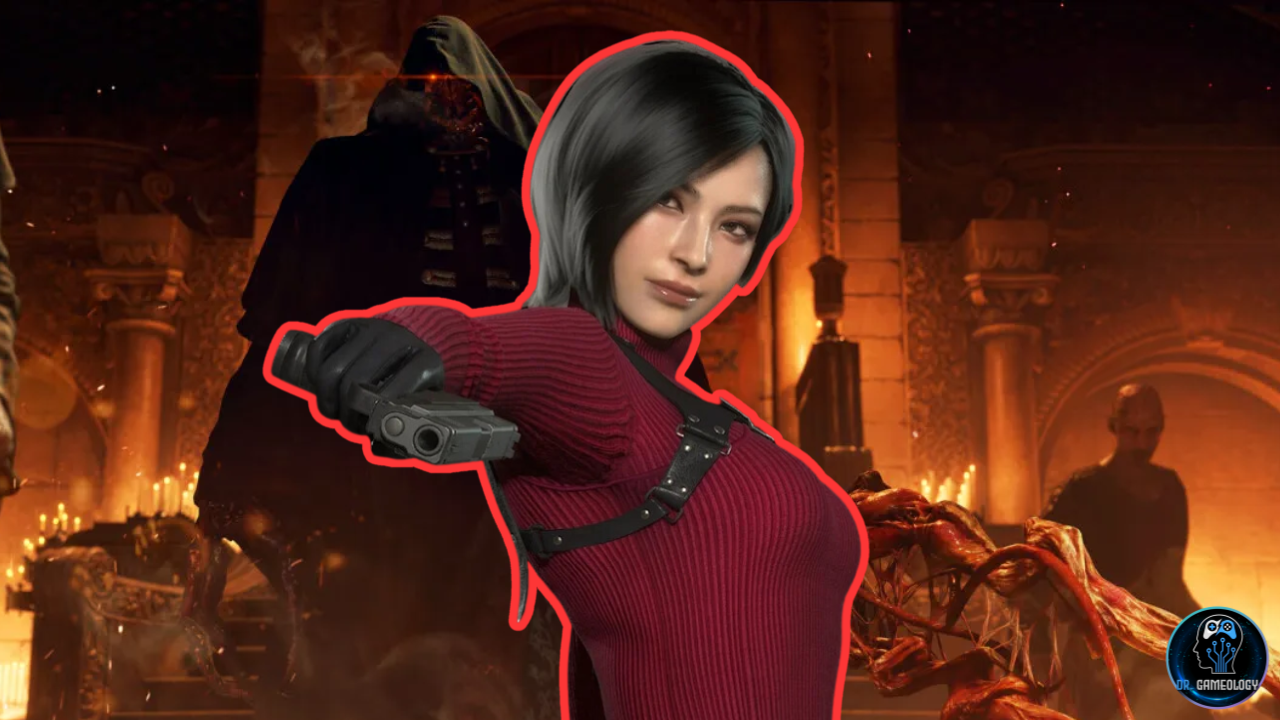The Persona games are a spin-off of the Shin Megami Tensei JRPG series, and this game centers on the Phantom Thieves. The games focus on the journey of these high school students as they use their personas, creatures born from their minds, to explore the depths of their psyches. Along the way, they must face their demons and prevent impending doom. While the tone of these games can be dark, they also contain plenty of humor and lighthearted moments. They create a perfect blend of anime storytelling with psychology approaching mythological styles of conflict.
In this episode, Dr. Gameology brings back his friend from many games, Gene, to explore the impacts and insights to be found from playing this beloved franchise. They explore the societal lessons, psychological themes, and the personal impact these games have had on their journey through their college years and life challenges.
—
Listen to the podcast here
Persona: The Psychology Of The Phantom Thieves
I’m joined once again by one of my best friends, for my gaming journey, Gene. How are things going for you?
It’s the same old for me but it’s going well.
I’m always glad to hear that. Thank you for taking some time to do the episode with me. Let me review where our readers can find us. I’m @DrGameology on Twitch and other social apps. You can find me on this show every week. You can also find us on Apple Podcasts, Spotify, Google and mostly anywhere else shows can be found. If you are enjoying our content, especially since we launched the website, please be sure to leave a review and let people know what you like most about our show. Gene, what are we talking about from the world of video games?
We are going to reach out to the truth and talk about Persona.
I love what you did there, Gene. I can’t resist using that phrase. It’s one of my favorite things to do. Let’s go ahead and enter The Ordinary World where we share everyday life through our games. Gene, I have a lot of bullet points to cover as I do in all my presentations and they always go over. It’s one of my weaknesses. I’m going to let you go first. What have you been up to in your gaming journey?
I’ve mostly been playing Darkest Dungeon II. It’s a game that’s in early access. It’s supposed to come out sometime in 2023 fully. I don’t know if you’re familiar with Darkest Dungeon I or not. Are you?
No, explain it to us because I love adding new titles to the conversation of our show.
Darkest Dungeon I and II are different styles of games but both can be summed up as misery management RPGs. Unlike most RPGs, the Darkest Dungeon characters have personality quirks and a stress meter. Their personality quirks influence how their stress builds up. If their stress builds up to the maximum, they have a mental breakdown and things quickly go bad. In the context of Darkest Dungeon II, it is misery management meets Oregon Trail. You’re assembling a group of mercenaries to get into a stagecoach across the country to a mountain to hopefully defeat the evil cult that has spread misery and problem to the planet.
These characters all have personality traits that are randomly generated with each go at it. You never know what you’re going to get when you start a new game. One character might be a hypochondriac. If he encounters an enemy that spits an item, his stress goes up quicker than if someone hits him with a sword. These traits bounce off the individual characters as well. One guy might be a devoutly religious person and wants to burn heretical texts and another character, a mage, might be into heretical texts.
The key to a game is what you do with the game, whether the actions of your character or the decisions you make are part of the technology. Click To TweetOne guy getting to burn scrolls raises the stress of the other guy. They also have relationship points with each other. If two people get along, they can achieve the status of best friend and that has various bonuses. If an enemy hits one of the best friends, there’s a chance that the other guy will counterattack for free, vengeance. There’s the opposite effect. If their relationship drops, they could be spiteful. If you’re trying to heal someone that spiteful, he might refuse to heal from that character he is spiteful towards and that is bad.
That’s a dynamic I might be getting ahead into later parts of the topic but that happens in Persona as well when you’re leveling up those social bonds and you pass levels 3, 4, 5 and so on. The allies will take shots for you or revive you. It’s a game mechanic and a way to structure your team’s strategy but it’s also indicative of that’s how friendship works.
The greater bonds, the more unconditional you’ll be regarded by that person. The more they’ll have your back, even when you don’t deserve it, the more enraged they’ll get when you get knocked down by the challenges in life. It’s so interesting all the things you can learn from a video game if you take the time to think about it seriously. It sounds like Darkest Dungeon has a lot of those things built into it.
In its state, it becomes the choice of the lesser of multiple evils because any one of your decisions will raise the stress of some party members and lower them on others. You’re trying to juggle it all to try to keep everyone at minimum stress as best you can.
It’s the moral manipulation of the phrase, lesser evil. The very first episode of The Witcher on the Netflix show was all about that but we also wrestle with that in a lot of decision-based games, as well as you don’t have a clear path to a win-win. You have to decide what kinds of losses you’re willing to endure.
Another facet of this scenario is that none of the characters in Darkest Dungeon are good. Everyone is a shade of gray or sometimes even outright evil. It’s like you’re appealing to somebody morally gray character that going to the mountain and defeating the cult is better than waiting here and dying to the cult.
One of the greatest lessons I’ve learned about morality from games and this is more from TTRPGs than video games is that I am extremely hesitant to accept at face value anything that comes from someone that claims to be lawful good. I don’t trust that moral designation at all. There is something wrong with people who are aiming for a lawful good because the law is so easily manipulated if you have the right influence.
In our fiction and maybe throughout real life in human history as well, we see that repeatedly. People come into the scene for lawful good and then the story twists them into revealing their true motives, which frequently are neither lawful nor good for the many but just good for the few. Maybe they didn’t play enough games to learn about morality effectively and they got their lesson from somewhere else that’s less effective. Where do people play the Darkest Dungeon games I and II when it comes out?
Darkest Dungeon I is available on numerous platforms. It’s been party to everything. Darkest Dungeon II is in its early access phase only on the Epic Games Store but once it’s fully released, it plans to be on many platforms.

I’m going to switch to some of the things I’ve been working on in games and hopefully, we can get through these quickly and get right back to our goal, which is Persona or main quest. In Final Fantasy XIV, we are, at the time of this episode, a week and a few days away from my presentation with Dr. Stephanie Diez-Morel at the Digital Games Research Association and that is so exciting.
We have the presentation coming together. We can see it. The paper has been done for a while but we have to convert that paper into presentation form, which is slides. It’s cool to make decisions about what we’re going to display for that association and its conference participants. That study is on Final Fantasy and the way personality and motivation for play affect the experience of psychological flow across different game modes and player types.
Once that’s published and public knowledge, we’ll cover all the ins and outs on our show. We have to wait for due process to complete itself but I’ve also been playing Final Fantasy XIV. I finished leveling my samurai and we’re going to have a mental health checklist come out on social media soon for that class. Different mental health tips we can get from using samurai as our player metaphor and as a result, I’ve moved on. I am playing a healing class that I’ve never played before. I’m playing Astrologian. Gene, have you ever played Astrologian?
Yes. During my time in the game, Astrologian was there. I hadn’t delved into it too deeply but I had raised it to the max level at the time to see what all the buzz was about.
They’ve simplified it a lot, I’m being told because the snow and walking uphills on both sides is every MMO player’s story as well. If I master Astrologian in the Endwalker expansion, I don’t understand the pain and the intellect needed to play it back in Stormblood but I’m fine with that. I’m just joking with everyone. I’m enjoying it a lot. I love the idea of drawing the astrological cards in the middle of a battle and then applying them to different teammates correctly. I love the anticipatory style of healing where you have to apply shields and put buffs on the ground that will time out at certain parts of the fight. It’s such a neat intellectual approach to healing because if I play in a dumb way, then bad things will happen to me and my party.
I like that responsibility, Gene. There’s a huge part of me that loves being a healer and then there’s the other part of me that loves destroying things as a DPS. I’m tapping into that healer side of me and it’s been a lot of fun. We started a new game but not a new game, only from a certain point of view. Kenobi ended and it was amazing but this is the gaming persona.
I started Shin Megami Tensei V on the Switch as one of my new stream games because Shin Megami Tensei is the origin game that Persona spun out of and then became the game. It’s so interesting that Persona has that. When I left you, I was about to learn it but now I am the franchise. The other two games, I want to mention because they’ve been a big part of this show. I am on my fourth play-through of Elden Ring and I’ve made it to the fire pit.
I’m on the home stretch where I will either decide to explore a lot, collect some of the legendary items so I can pop a couple of achievements onto my profile or finish the game and do those on playthrough five. I don’t know which way I’m leaning, what I want to kill and what I am fine with not killing but it’s been a lot of fun. I don’t know if I want to do a fifth playthrough. I am also playing Danganronpa with my family, which is a court case social adolescent murderer sim with a crazy narrative flow. It’s very Japanese in delivery. I love it so much. It’s amazing. I can’t believe I didn’t play this when it was new and I’m sure we’re going to cover that series in-depth at some point on the show.
I did try and convince you to get it when it first came out.
Persona 3 and onwards is not only about fighting monsters. It is also making friends, and those friends represent the various aspects of a person's life. Click To TweetThat’s why you’re here, Gene. Let’s go to the Call to Adventure. This is where we get into our topic for the week. The name of the show is The Gaming Persona. We have done over 70 episodes and we haven’t had an episode where we just sat down, kept it simple and talked about persona. That’s even more ridiculous to wrap my head around because I was playing Persona as my full-time streaming game when I changed my name to Dr. Gameology for my stream channel and social media content. I was playing Persona 5 Royal as my stream game when I had the first conversation with Jenny about doing a show and what would that show be named.
It’s the first time that I said to someone, “What about The Gaming Persona?” There were so many other names. Some of them I liked a little bit but as soon as those words left my mouth, it felt like it was a truth that has always been there. It felt right. We’re going to talk about personas, both from a psychological perspective and what it is as a video game franchise.
Gene, I brought you on the show because you’re the first person that ever talked to me about these games maybe we were both in college. I don’t remember if we would have been talking about these in high school. It was a long time ago. This franchise has been there and it’s amazing. Do you want to do an overview of what it is or would you like me to summarize it?
We look at it from the perspective of Persona 3 to the present. The games are in a way typical Japanese RPGs turn-based but it also has elements of monster collecting like Pokémon or Digimon game. Also, from Persona 3 onwards, they started to heavily incorporate social interactivity between your main character and the relationships that you formed with everyone around them. Persona 1 and 2 didn’t have that part. It’s a type of monster collecting.
From 3 onwards, it’s not only about fighting monsters and getting stronger and getting better stats. Your character is directly benefited by essentially meeting and talking to people and making friends. Those friends represent the various aspects of a person’s life and you, by developing those relationships, are empowered by them. Another aspect is that Persona 3, 4 and 5 are from the perspective of a high school teen. There’s a lot of emotional drama that comes with being a person at that age. The story typically navigates the various issues surrounding that career development.
One of the things that are interesting about it is the social link side of the game. It is an opportunity to practice, understanding what other people are feeling as they talk to you and choosing your response in a way that they will appreciate the best. What profession does that routinely throughout their day every work day, counselors do. You could argue that the first time I got to practice understanding how a conversation works if we’re looking at video games would have been a game like Persona or there’s a little bit of this in Knights of the Old Republic from Star Wars and BioWare.
Any game where you’re trying to understand the motivations of other people, put your motivation aside and say the best thing from their point of view. It’s interesting to use that as a game mechanic because if you’re looking at it as, “How do I have the best stats, ability list and opportunity to survive the next day that I’m stuck in a dungeon with these characters,” then you want to manipulate the heck out of them so that they will like you more and get to a higher rank.
They’ll take those bullets or demonic blasts for you and save your life, which gives you one more turn where you can try to win the battle. Persona has half of it, which is the adolescent social calendar. You go to classes and listen to the teacher’s lectures for about 90 seconds. You are quizzed on the things they said 45 minutes later in the game. You get ranked across the other people in your year of high school and life gets easier for you if you are at the top of the class because you get certain rewards or conversations that might happen.
It’s fascinating to have a game like that but then on the other side of it, you go into the collective of the unconscious of your society and battle all the demons, religious neuroses, depressions and anxieties. You battle demons that are sitting on a toilet and also, phallic demonic presences that are floating through the air swinging at you. It’s very old-school psychology when you go into the parts of the game that are not meant to be realistic and that’s a fun level of ridiculous as well. Have I left anything glaring out of the game? What else is there? The Arcana, the tarot card.

Also, we should probably talk about the Velvet Room or whatever it is from game to game. There is Igor, a long-nose and older gentleman with piercing eyes who says, “Welcome.” He’s in this blue room that doesn’t exist in reality. It’s a psychological room that represents your captivity. That’s how your character becomes the chosen one.
All these other people have one persona that they will wield in their battles to help you down the path towards your destiny but you always end up as the player being the one person who can find other personas and form a battle party with your personas and social connections, which makes you the one person who can save the persona or the psychological essence of existence. What are some of your favorite Personas, Gene?
My favorite will always be 3. It is not as well-developed as 4 and 5 because they learn from their errors. Three had a certain balance of punishment versus reward that I feel is a little bit less in the later games. The later games were more forgiving about it. 3, 4 and 5 are metaphors for a certain idea and Persona 3 is a big metaphor for overcoming depression. That one is very well-laid out compared to the messaging of the other games.
I want to put a very clear and honest trigger warning here because I’m going to talk about something that’s potentially very dark but it’s a heavily established metaphor in Persona 3 that belongs in a conversation about the psychology of these games. The Evoker in Persona 3, which is the one game in the franchise I haven’t finished, probably because it is more difficult. It honestly stopped me at one point and I never went back because of other things.
I forgot and then realized, “Persona 3 is the one I’ve never finished.” It’s been that way for years. The Evokers, the way that you call their personas out in that game are these devices that look very much like handguns but they’re not handguns, I suppose. By touching your head with this device that looks gun-like, you pull the trigger and that is where our trigger warning comes.
This is a symbolic thing occurring in a psychological world. It’s not something that happens in a reality-based world. When you pull that trigger, the light coming out releases the persona from your mind. It manifests, comes out and aids you in battle. It’s like it is morphing time from the Power Rangers. That’s the way they trigger the release of that power in Persona 3. Persona 4 and 5 do not do it that way. There might be social or cultural reasons for that but also that imagery creates the edgy profile for this game to tackle whatever issue it wants to and say, “This is our story.” If you don’t like it, don’t play it, is a little bit of the message there.
There’s the act of triggering the Evoker to your head. The technology is fuzzy. It’s a fantasy magic psychology gun but the heavy lifting of how that works is almost like a placebo for the user’s mental state. The act of pulling the trigger is for them a release of their inhibitions to allow their persona to burst forth from them.
It’s like dying to the actual self to let the ideal self take the reins and enter the battle. The ideal self, the actual self and the perceived self are important parts of analytical psychology and self-psychology. I talk with my students about these concepts all the time and they always come up at fan conventions. It’s one of my favorite ideas. The persona itself also is the mask we wear to successfully navigate a situation. You could argue that I’m talking with all of you, Gene and our readers but I’m talking with the podcaster persona on my face.
I’m talking with the professor persona on my face or if that’s not it, the gamer persona, which is shockingly close to the title of the show. The reality is every episode, I am aiming to fulfill all 3 of those 4 people. That’s why these games are so interesting to me because they are games that are built around the concepts that it’s my job to teach people to use correctly. Gene, you’ve played them and you said some things that my students can’t talk to me about because they’re not spending their time reading the textbook. It’s so important to read the textbook everybody but if you’re not going to, at least play Persona during week two of my theories class.
Triggering the Invoker to your head is like dying to the actual self to let the ideal self take the reins and enter the battle. Click To TweetIt is certainly an educational game, in many ways.
During the week, I include a lecture video where I include a short clip of me playing Persona 5 in the PowerPoint slide and it’s playing while I’m talking about the concept of personas. I do this throughout my classes. If I have a clip of me playing a game that fits into the academic topic, I share it that way because I believe my students will remember the idea longer, maybe even years from now if I choose to teach it to them that way. It is why Demon’s Souls makes its way into my behaviorism week and why Abzû makes its way into my mindfulness and acceptance theory week.
We have covered what Persona is. If you’re interested in any of this, you can play Persona 4 Golden on Steam. You can play Persona 5 Royal on all the current consoles and the past generation of consoles. You can play Persona 3 Portable on the PlayStation Vita or things older than that but all three are coming soon to the current list of consoles like Xbox, Switch and all the PlayStation consoles and PC.
That was big news that came out when we were recording other episodes. We thought, “It would be good if people knew how big a deal it is that these games are coming back into the present version of gaming awareness.” Let’s go ahead to The Ascent where we can elevate the topic. Gene, there is an article that I found that’s peer-reviewed that talks about the nature of Persona 3 in the rhetoric of gaming culture.
I wasn’t sure if I was going to find peer-reviewed persona content, which if that would have not existed, then I would have a new side quest very clearly that I would have to take upon myself and I may even still have to. This article is about the narrative design in the persona games and how they impact the experience of the player, how we spend our time in the game and how we view video games before we play them versus after we play this particular game.
I’m going to bring up two words and then we’re going to have a fun little conversation about what we think they mean and how video games become a thing through the use of these words. Ludology is the first word and the second word is narratology. We should start with ludology. Have you run into that word before?
Yes. That one, I am familiar with more so than narratology.
From your point of view or when you’ve heard, it brought up in conversation, what is ludology?
Ludology is the study and the idea of looking at how people interact with the games, the games’ rules, systems and behavior that shapes those concepts.
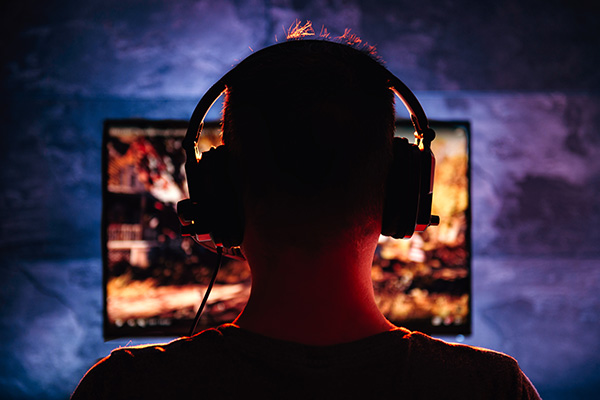
It also can extend to players in the cultures that surround the playing of these games as well. There’s a social feature to it. When you look on Twitter in particular and you’re looking up people that do the thing that I do related to social science and psychological research, a lot of us will use the #GameStudies but that’s because most people aren’t going to look up the #ludologist. If you want to get specific and limit it to one word, The Gaming Persona is a ludology show. That is what we’re talking about in every single episode that we’ve read. Let’s talk about the second word, narratology. Have you run into this word before, Gene?
I have encountered it but I have not done any reading about it.
Narratology
If you look online and do a basic Google search on this, you’re going to find narratology but a lot of the sites that tell you what it means are going to also mention that they disagree with those who champion the word ludology. It’s like a versus, which I don’t think we need a versus here. Narratology argues that games become an art form or a path to artistic expression through the underlying narrative structures so you can interpret games as if they are literary texts.
Every episode of the show where I say something like, “Video games are the modern mythology,” is not a ludologist’s perspective. That is a narratologies perspective. The reason I don’t think we need a versus here is that they’re both right. We have a fun three-way Venn diagram where there’s a ludology circle on the left and a narratology circle on the right.
They overlap the way Venn diagrams do but on the bottom in the center of the two is a game design circle. There is a little rounded triangle on this diagram where game design, narratology and ludology all combine where they’re creating the same thing in that one portion of what they do. Some of the games that mean the most to me exist largely in that triangle.
Personas are very centered in this model.
The games that I struggle with understanding why they’re important don’t have a narratology portion to them so I don’t play them or at least, it’s not apparent to me that they do like Call of Duty or any game that is famous for its small type player, instead of its story campaign. You have ludology because you have the people that are logging in to play them, defeat each other and ascend the leaderboards. They have cool weapons, settings and things they explode and strategy.
I don’t want to be little the play of the game but the story is not an element there. You’re removing an entire circle from this diagram and making something that’s still successful but relies on ludology in the form of the players and the people who play the game and interact with the styles of playing the game.
You have a game design, the levels, the weapons, the progression, the challenge of the leader boards, the wins and the losses but you don’t have the narratology. That’s why Persona grabbed me the moment I played Persona 4 Golden on my Vita. PlayStation Vita is a handheld version of PlayStation that came out years ago. It was a good handheld. I wish it would have sold better so that we’d be playing the Vita 2.
Ludology
Ludology is the study and the idea of how looking at how people interact with the games, rules, the game systems, and their behavior that shapes those concepts. Click To TweetThat is arguably my favorite handheld console, if only I had a more expanded game library.
Persona 4 Golden made that handheld work as long as it did. I don’t think regular Persona 4 was in my awareness but Persona 4 Golden came out on the Vita and if you owned a Vita, you needed to own that game. My wife saw me playing it and we bought her a Vita so that she could play Persona 4 Golden. We played that game side-by-side while I was a doc student and had so many cool conversations about that game.
I even did not get the best ending the first time so I had to play the whole thing again. Can we talk about how Satan is hiding in town? Spoiler alert but the way that they let you feel when you take down the villain in Persona 4 and then come to realize that you had it all wrong. It was never about him. It was such a good video game turn.
That is very true, especially with the expanded ending options that you have in Golden. That alone made it worth it for me to replay again because I played the original 4 and then Golden came out. I was like, “New endings.”
Also, I platinum-trophied Persona 4 Golden and Persona 5 Royal but to do Golden, I had to run through the game two additional times forcing Risa to say, “Somebody is poisoned, paralyzed and cold.” You need to go into the dungeons and deliberately lose characters in certain ways because the trophy unlocks by getting her to say 95% of her possible dialogue lines.
I would have platinum if not for those specific trophies.
We talked about your motivation last time you were on the show, Gene, where you’re not necessarily going to do something incredibly stupid to get affirmation from the game itself. Whereas it turns out I will do incredibly stupid things to get affirmation from any outside source, whether it’s a professor or the trophy library that PlayStation gives us. I also completed Persona 4 Golden after many dungeons run. I wrote out all the lines and played from the beginning getting all of them because there was no way to know which ones I’d never heard before.
Some of them are indeed incredibly obscure. It’d be like, “The rest of your party is dead and you are asleep.” It’s like, “How often does that come up?”
You have to control the entire fight, including losing terribly, which sometimes takes a long time with the kind of enemies that you need to use. If you use the two powerful ones, they’ll wipe you out before you can set up the situation correctly. It’s a terrible intellectual exercise to be able to manipulate these Pokémon-style fights so that everybody’s paralyzed except for one character who happens to be poisoned or something like that. As far as role-playing games go, Persona has to be considered one of the best franchises that there is across video games.

The point of debate around what you’re saying there is that there are many RPGs out there. The RPG acronym is Role Playing Game. There are certain games that you could argue has rPG or any combination of one of those letters of the acronym being lesser than the others. In Persona, all three letters are maximized but there are certainly games where it’s like, “You’re not playing a role. You’re just going on an adventure. You are playing the events that someone has set out for you.”
Also, the entire concept of playing a game that is so much like Pokémon but is so adult in delivery using high school kids, which is the transitional period where you switch from childhood styles of thinking to the more mature or immature styles of thinking that we connect with adulthood as far as legally expressing those lifestyle choices. With the ability to interact with so many mythological and religious ideas, you can control all the different levels of the devil, whether it’s the angelic versions or the fallen demonic versions.
You could even argue that in certain Persona games, the final boss is you versus a version of the Supreme God, whatever religious perspective you have there. You can project into that and see that you’re battling that idea but that’s just it. You’re battling the collective consciousness’ idea of what that would be if it were real. If you’re prone to be offended like, “You’re having these teenagers kill God,” you’re having them battle with a perverted version of God that is being skewed by the evil drives that humans can have to ruin the lives of others.
In these games, you are stopping drug dealers, pedophiles, corrupted politicians, over-wealthy slave drivers and corporate billionaires. You are fighting for social change but you’re doing it in a way where it’s so teenager that you’re also dealing with the tragic reality that it’s Valentine’s Day and you have 12 girlfriends and 1 of them is your teacher. That happens in the game too if you play a certain way.
Most people who are into this franchise admittedly have not played Persona 1 and 2. It’s hard to play those because they’re on ancient systems.
I don’t even know how you go about playing those.
I believe they’re on PSP. You might be able to play them in a PS1 classic. I’m not sure. They’ve let a certain plot element drop from Persona 3 onwards but in Persona 3, you’ll probably notice that there is a blue butterfly that plays prominently as a recurring motif. The blue butterfly represents a character that was key to Persona 1 and 2 and his name is Philemon.
Philemon and his nemesis are essentially playing this very long-term game. Your persona is a game within a game but the grand game is the argument of free will versus imposed will. The people that represent Satan in all these games are probably being manipulated by the nemesis figure that says, “If humans are left to their devices, they will always choose evil.” Philemon is the opposite of that. They believe in the potential of humanity to make themselves eventually get to the right place.
What does it say about me if I’m willing to hear their argument and I’m concerned that they’re right? That’s such an interesting point in time for us to be talking about this idea coming from a video game. It’s a warning like, “Maybe we should deliberately do good instead of deliberately do evil.” Any time a game tackles the concept of free will, I am always going to show up for that.
The Ideal Self, Actual Self, and the Perceived Self are essential parts of analytical psychology and self-psychology. Click To TweetThe beauty of these games comes from a construct that we can call bogus procedural rhetoric and this is a perspective on video games that they are an expressive medium and also a persuasive medium. What that means is it unlocks the opportunity for the players to interact with ideas subconsciously or more safely than maybe they would struggle with a new idea blindsided by it in a societal-based situation. If we are concerned about what will happen if certain people are given unlimited power but also total dominion over the consciousness of society, that impacts free will.
The persona games by the end of each one, send you into wrestling with the reality of what that would look like. You see people torn apart. You see the faceless, identityless version of society crawling through the psychological version of the streets, having their free will sapped from them and accepting any ideological prerogative that’s passed to them by the people in power.
You see the people who have been chosen by these different spiritual forces or just random installs of weird apps on their phones. It’s their job to save society because there’s no one else. It can be silly. They can get all the range of things. They can go on a date to the movies, get a stomach ache from eating a bottomless bowl of ramen and go into the demonic subway, ride their cat bus and destroy the minds of very guilty child molesters or steal their hearts. They’ll never see it coming. Let’s go on The Return where we go back to our daily lives and take the next step forward. Gene, what are you taking with you from our conversation about persona?
The debate about ludology versus narratology as I was not familiar with the narratology side of it before. If you are in this camp where you are on narratology and reject ludology entirely, the logical extreme there is that once you shift so far to the direction of narratology, it’s no longer a game. It is a movie.
Gene, tell me more about that.
The key to a game is what you do with the game, whether the actions of your character or the decisions you make, which is part of ludology. If you remove that, what is the difference between that and someone reading or showing your story? The interactive component is key to what makes a game a game, in my opinion.
I read a study once. It was so long ago. It talked about depression rates for people who are primarily viewing streaming apps like Netflix as their form of entertainment versus people who are playing video games as their primary form of entertainment. The Netflix group experienced higher rates of maintained depressive symptoms because they’re not mentally engaged in doing anything. The guilt is higher, the shame of time is wasted and the black screen with the white letters says, “Hey, loser. Are you still there?” It doesn’t say that but mentally, it feels that way.
When Netflix throws that message at you, it implies that you’ve watched too many episodes for this to be one sitting. Whereas with video games, even if you have a prolonged sitting, you are at least problem-solving. If you’re playing a game like Persona, you are potentially interacting with more existential, spiritual and meaningfulness concepts in that gaming session than people who go to college, religious centers or even nerd nights at their favorite city location or fan conventions. You’re sitting there absorbing all the social quandaries.
You should take a break, stretch your legs, hydrate and have other things you do in your life but I’m saying, if you’re going to play a game for a prolonged period, Persona nourishes your mind and gives you endless strategic problems to solve especially if you’re playing on a higher difficulty. It’s so hard and that’s part of the fun. That movie point is such a good one. What does that say about the last games that you came on to talk with me about like Cory and Detroit: Become Human? Those are much closer to movies but the narratology people would be extremely happy with those as well.
I would agree but at a minimum, you have to make the decisions. If you don’t have any decisions to make, it would not be a branching narrative game. It would be one singular storyline. You can’t divorce the ludology out of it without it being no longer a game, I don’t think.
Those games are games. They tackle their design and mix their story in much larger quantities than other games do in that balance between game mechanics and story experiences. As far as Persona goes, there are so many systems to interact with, ways to see progress and level up characters in different ways. You synthesize the personas to make new ones and make sure you collect all of them in the list eventually. In the Arcana from the tarot cards, you have the Tower, Empress, the World and my favorite is the Councillor, which was introduced in Persona 5 Royal. I have one last quest for everyone to collect for the day. Go all out in life, your stories, ideas, personas and continue the journey.
Important Links
- @DrGameology – Twitch
- Apple Podcasts – The Gaming Persona
- Spotify – The Gaming Persona
- Google – The Gaming Persona
- Article – Rules, Rhetoric, and Genre: Procedural Rhetoric in Persona 3
- https://www.Polygon.com/23164804/Persona-Coming-To-Xbox-Console-JRPG-Atlus
